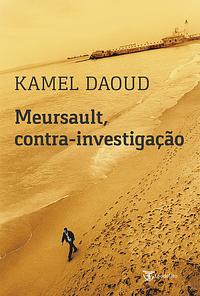Take a photo of a barcode or cover
challenging
reflective
slow-paced
Plot or Character Driven:
Character
Strong character development:
Yes
Loveable characters:
Complicated
Diverse cast of characters:
Yes
Flaws of characters a main focus:
Yes
I only tolerated this because it was a follow up to the Stranger by Albert Camus. This was meant to be sloppy, I believe, but still it lacked depth for me. At the beginning, I was pleased to hear the family perspective on the Arab man passing away but it was drawn out in a very repetitive way. At one point in this book, the narrator says “I am doddling a lot, that must be annoying”. And I thought, that’s what I’ve been thinking this whole time.
reflective
medium-paced
Plot or Character Driven:
Character
Strong character development:
Yes
Loveable characters:
No
Diverse cast of characters:
Yes
Flaws of characters a main focus:
Yes
reflective
tense
medium-paced
Plot or Character Driven:
Character
Strong character development:
Complicated
Loveable characters:
Complicated
Diverse cast of characters:
Yes
Flaws of characters a main focus:
Yes
challenging
dark
reflective
sad
Plot or Character Driven:
Character
post-colonial classic. the premise of this book is incredible and the use of literature as a space to explore the colonial relationship is brilliant.
there are moments in this book that are truly truly superb but a lot of it feels like an admission of defeat (on my part? or on the author's?) - and maybe that's the point. i prefer the theoretical to the "biographical"/story elements, and expected the book to be more of a linguistic and philosophical exploration and critique of the book. it's not, it's about the life of the survivor. it is messy. certainly my expectations were flawed, and perhaps this is better. but i can still see glimpses of the book i wanted this to be, and i'm a little sad.
there are moments in this book that are truly truly superb but a lot of it feels like an admission of defeat (on my part? or on the author's?) - and maybe that's the point. i prefer the theoretical to the "biographical"/story elements, and expected the book to be more of a linguistic and philosophical exploration and critique of the book. it's not, it's about the life of the survivor. it is messy. certainly my expectations were flawed, and perhaps this is better. but i can still see glimpses of the book i wanted this to be, and i'm a little sad.
I'm not going to rate this because I found this book to be uneven. I liked the premise. A look at the murder victim's point of view from the [b:The Stranger|49552|The Stranger|Albert Camus|https://i.gr-assets.com/images/S/compressed.photo.goodreads.com/books/1590930002l/49552._SY75_.jpg|3324344] by [a:Albert Camus|957894|Albert Camus|https://images.gr-assets.com/authors/1606568448p2/957894.jpg]. The first part of the book was repetitive. The last third or so of the book was the most interesting because the discussion of Independence and life in Oran, Algeria.
challenging
reflective
slow-paced
Plot or Character Driven:
N/A
Strong character development:
No
Loveable characters:
No
Diverse cast of characters:
No
Flaws of characters a main focus:
Complicated
I couldn't get into this book. I love the idea behind the work, and I understand and support what Daoud is trying to do...but the writing. Oh man, the writing. It's all over the place, very stream of consciousness, and it's very difficult to follow. It's written like a never-ending monologue, and there's really not a lot of plot development. I suppose people who like character-driven novels might enjoy this, but I like character-driven novels and I still couldn't get into this one. I just was not a fan of how Daoud put his vision on paper.
Note for people planning on reading this: make sure you've read Camus' The Stranger (it's skinny!) first or you will probably not manage to make much sense of what is going on.
Furthermore: this novel takes a critical look at the way colonial novels such as The Stranger and the way in which the natives of the colonised lands are treated. In the case of The Stranger, which is an interesting work in itself, (although I would give it less stars now after reading this) it contains a character who is not named and is only ever called The Arab, I am not going to tell you anymore about said character, no spoilers, but Daoud criticizes the fact that this person has no name. He gives him one, as well as a brother and a mother and a story (well the idea of a story, we mainly get the brother's story) and a background.
The writing felt slightly clunky, but this may be because of the translation so I'm not going to deduct any stars for that. I would hugely recommend as the viewpoint is a critical one.
Furthermore: this novel takes a critical look at the way colonial novels such as The Stranger and the way in which the natives of the colonised lands are treated. In the case of The Stranger, which is an interesting work in itself, (although I would give it less stars now after reading this) it contains a character who is not named and is only ever called The Arab, I am not going to tell you anymore about said character, no spoilers, but Daoud criticizes the fact that this person has no name. He gives him one, as well as a brother and a mother and a story (well the idea of a story, we mainly get the brother's story) and a background.
The writing felt slightly clunky, but this may be because of the translation so I'm not going to deduct any stars for that. I would hugely recommend as the viewpoint is a critical one.




